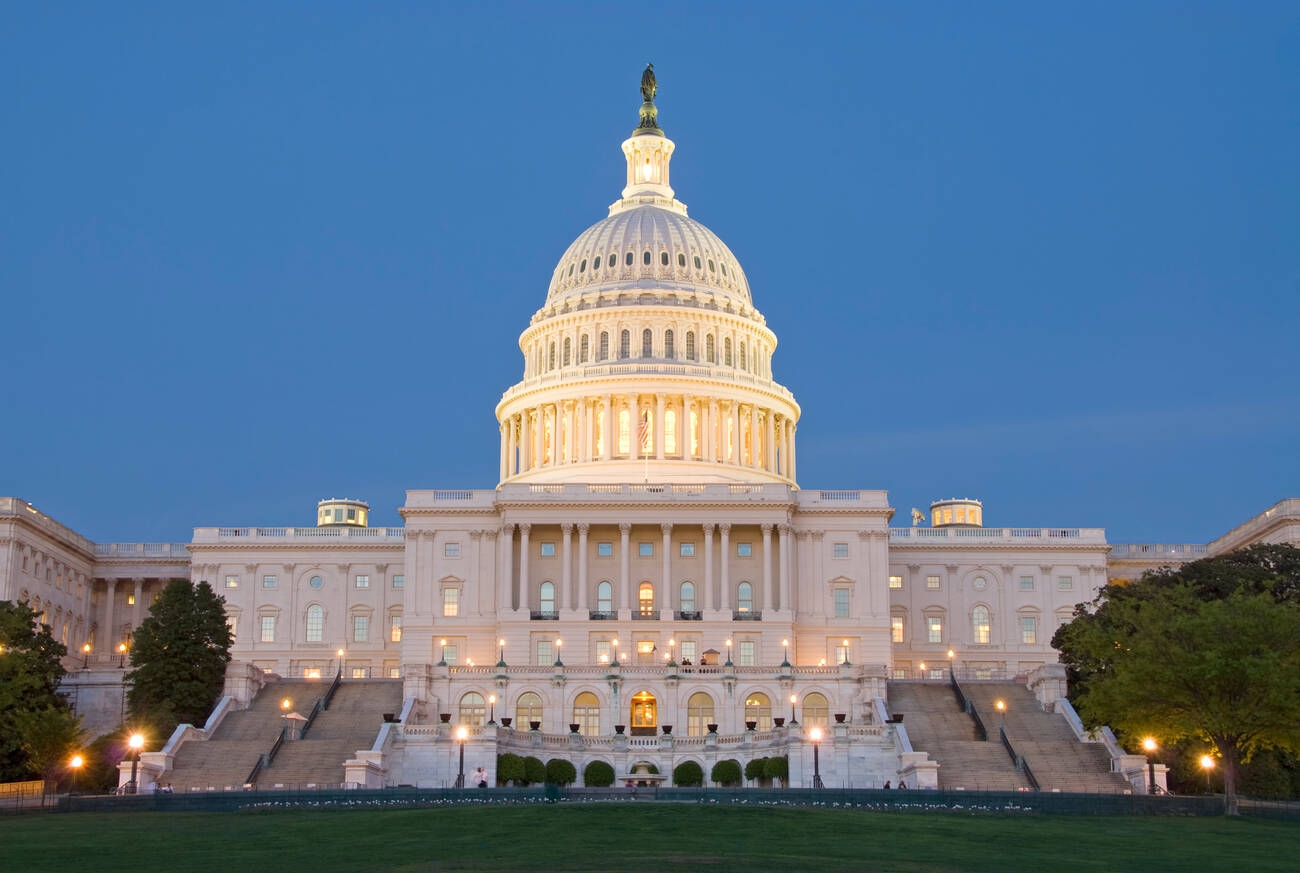By Caitlin Reilly, CQ-Roll Call (TNS)
A bipartisan, bicameral $70 billion tax agreement taking shape on the Hill is drawing mixed reviews, pointing to potential challenges ahead for Senate Finance Chair Ron Wyden and Ways and Means Chairman Jason Smith.
The tentative agreement would devote equal resources to reviving a trio of business tax breaks and increasing the child tax credit available to families with little taxable income. While many lawmakers praised portions of the framework, some are pushing for Congress to do more and others are raising issues with the plan to pay for the package.
Wyden, D-Ore., said Thursday he was continuing conversations with Smith, R-Mo., and was working to bring Finance ranking member Michael D. Crapo, R-Idaho, on board.
Some Senate Finance Republicans said they were eager to reach a deal. Others took issue with the plan to end the pandemic-era employee retention tax credit early as a means to cover its costs, as well as the scope of the tentative child tax credit expansion.
“The employee retention credit was implemented in the CARES Act and did not have a pay-for, so that’s a fake pay-for in my opinion,” Sen. Thom Tillis, R-N.C., said, referring to the 2020 pandemic relief law. “We got work to do on the child tax credit because it’s too expensive and too much, and it needs to be focused on the people who actually need it, not everybody.”
On the other side of the issue, some Democrats want a package that would do more to expand the child tax credit, specifically make the full credit available as a refund to families with little or no taxable income, as was the case under the 2021 pandemic relief law.
“The CTC was transformative when it had full refundability,” Rep. Jimmy Gomez, D-Calif., said, referring to the child tax credit. “In my district, it was something that people noticed. What we’re still pushing for is … a CTC tax package that makes that kind of profound difference in people’s lives. And right now, I don’t think they’re there yet.”
The full credit currently is $2,000, but only $1,600 is refundable. The rest is counted against a family’s total tax liability, which ends up benefiting middle-class families with larger tax exposures more than poorer families owing less.
The agreement would allow families with little taxable income and more than one child to access more of the credit more quickly. Other changes to the credit include a modest increase to the total credit and boosting the cap on the credit available as a refund gradually, a source familiar with the negotiations said.
Senate Finance member Michael Bennet of Colorado, who with others pushed for action on the child tax credit and urged other Democrats to oppose reviving business benefits without it, praised the changes a deal would make, particularly increasing the amount available to poor families with more than one child.
“My objective has always been to make sure that we include as many of the kids that have been left out as possible,” Bennet said. “We were not going to do any deal on the corporate tax cuts without doing something meaningful on the child tax credit. I think we find ourselves in a place where we’re within shooting distance of actually achieving that.”
The Center on Budget and Policy Priorities estimated that the changes would lift up to 400,000 children out of poverty, with the increase to the credit available as a refund to families with more than one child making the greatest difference.
Affordable housing, ‘SALT’
Housing is another issue some Democrats would like to see addressed in a deal. Sen. Sherrod Brown, D-Ohio, said expanding the low-income housing tax credit came up Wednesday in Senate Finance Democrats’ meeting with Wyden.
The tax credit, which offsets the cost of building or rehabilitating affordable housing, tends to be popular with members of both parties, but Brown said Republicans have opposed expanding the credit on top of the rest of the deal.
“We all want to do it,” Brown said. “But Republicans want to count LIHTC—for every dollar that goes to LIHTC, they want to take it out of the child tax credit.”
The potential agreement’s silence on the $10,000 cap on state and local tax deductions could also undercut support among both Democrats and Republicans from high-tax, high-cost-of-living states who would like to see the limit lifted.
The issue has become especially salient for vulnerable Republicans in blue states like California, New York and New Jersey. Rep. Mike Lawler, R-N.Y., said he wouldn’t support a tax deal that doesn’t address the “SALT” limit.
“As I have said from the very beginning, without a fix for SALT, I cannot support any tax deal,” Lawler said in a statement.
‘Giant corporations’
The still-emerging deal’s handling of business tax credits was generally well-received, though progressive Sen. Elizabeth Warren, D-Mass., dismissed it as a giveaway to corporate donors.
“The Republicans have decided that the only way to help poor children is if giant corporations will get out billions of dollars in tax rebates. That’s the wrong approach,” Warren said.
The developing agreement would include full, upfront expensing of business’ domestic research and development investments, rather than the current requirement to space those deductions out over five years. But businesses would still have to amortize deductions for foreign investments in research and development over 15 years, according to a source familiar with negotiations.
It would also revert to a more generous cap on interest payments deductions put in place by the 2017 tax law and phased out in 2022. It would also extend a provision from the 2017 law allowing businesses to deduct all of their investments in short-term assets, such as machinery and other equipment, the source said. The deduction dropped to 80% of those purchases last year and will phase out entirely by 2027, absent congressional action.
Sen. Maggie Hassan, D-N.H., who has worked with Sen. Todd Young, R-Ind., on legislation to reinstate the full R&D deduction since 2020, praised the proposed changes to the credit.
“It is an important step forward that we have been able to reach a strong, bipartisan deal to restore the R&D deduction along with a bipartisan, tailored expansion of the child tax credit,” Hassan said in a statement. “I hope that Speaker Johnson and others in Republican leadership will listen to the calls from both sides of the aisle and engage on this.”
The provisions also had some Senate Finance Republicans eager to reach a deal.
“I hope we get something passed,” Sen. Steve Daines, R-Mont., said. “There’s a lot of businesses depending on us to get our job done here.”
But finding a legislative vehicle to attach a tax deal could also prove challenging, Sen. Charles E. Grassley, R-Iowa, said.
“I believe it’s going to be more of a process problem and a substantive problem because of the speaker not wanting tax bills to go on the appropriations bill,” Grassley said, referring to Speaker Mike Johnson, R-La. “So I think the chances of getting it done, at least during this January period, is pretty nil.”
Wyden has said he wants the package done by Jan. 29 to avoid adding confusion to tax filing season, but has dismissed questions about legislation that could serve as a vehicle. Majority Leader Charles E. Schumer of New York cued up a House-passed revenue bill to carry a stopgap funding bill next week that could in theory serve as an option if a deal is done in time.
“My sense always is you get an agreement on issues and legislative vehicles tend to come,” Wyden said.
_______
©2024 CQ-Roll Call Inc., All Rights Reserved. Visit cqrollcall.com. Distributed by Tribune Content Agency LLC.
Thanks for reading CPA Practice Advisor!
Subscribe Already registered? Log In
Need more information? Read the FAQs




